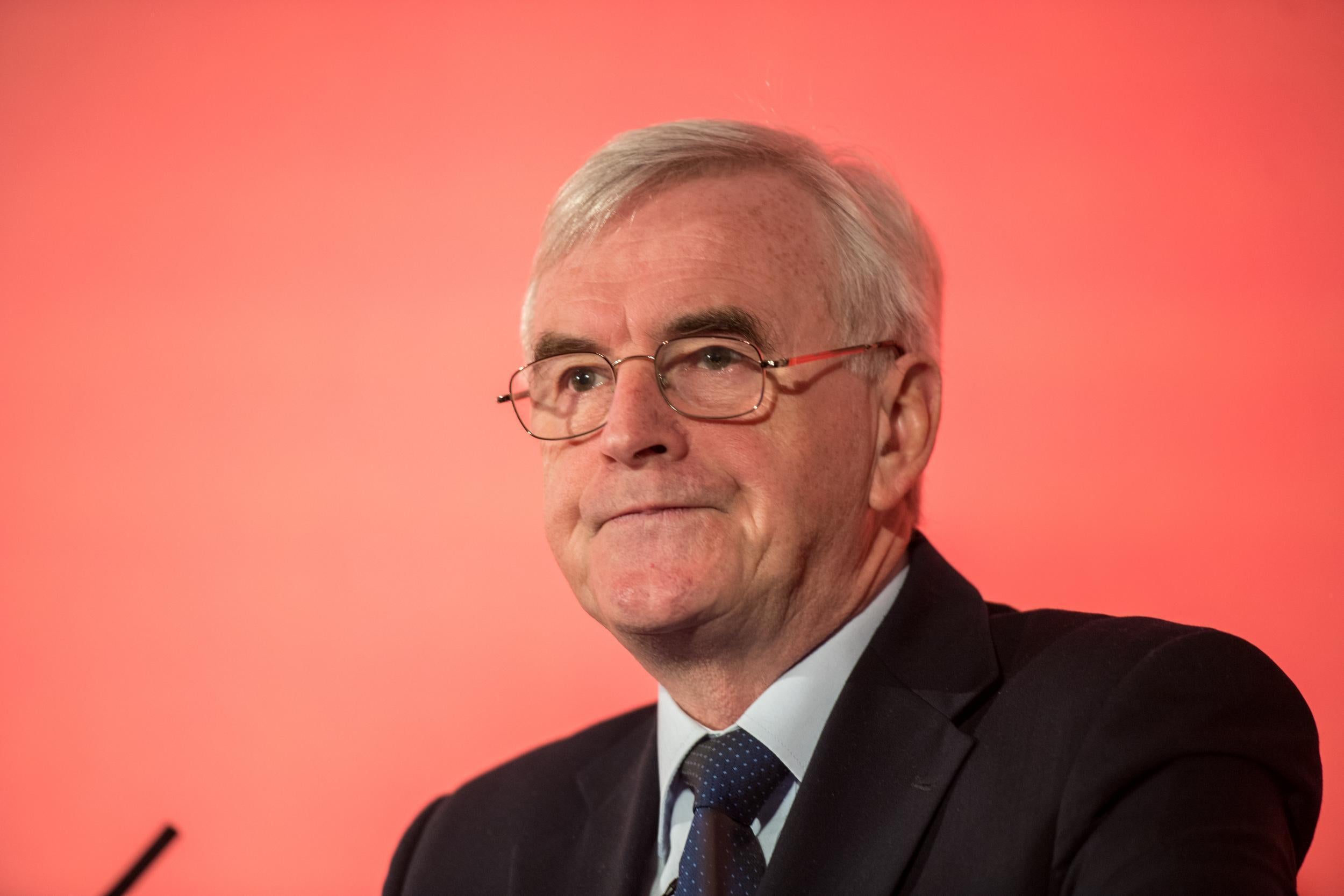John McDonnell’s renationalisation plan is clever politics – but bad policy
McDonnell is able to be so ideological on the subject of nationalisation as it’s popular with the public right now – but it won’t always be


To understand Labour’s plans for public ownership outlined today by John McDonnell, the Shadow Chancellor, let me take you back to 1985. Margaret Thatcher, in her prime, claimed in a speech to the Young Conservatives to have delivered “a fundamental and irreversible shift in the balance of power and wealth in favour of working people”.
The phrase came from Labour’s manifesto for the February 1974 election, a radical aspiration that had ended in the humiliation and disappointment of a bailout by the International Monetary Fund and a winter of public-sector strikes.
Thatcher claimed she had achieved Labour’s goals by Conservative means – by selling council houses and spreading share ownership through what was still then called “de-nationalisation”. When Labour talk of the “shift in the balance of power” she said, “they mean more power to the state”. The Conservatives, on the other hand, “mean more power to the citizen”.
Meanwhile, across the Thames from Parliament, where Thatcher had a 144-seat majority, McDonnell was deputy leader of the Greater London Council. The GLC was one of the centres of resistance to Thatcherism, most visibly by putting up a huge counter on County Hall, facing the Palace of Westminster, of the numbers of the unemployed.
Thatcher responded to the provocation by passing a law in 1985 to abolish the GLC. Before it could take effect, however, Ken Livingstone and his deputy fell out. McDonnell wanted to defy the law by refusing to set a rate (the precursor to the council tax) for the GLC’s final year, arguing that the amount they were allowed to raise by law would mean deep cuts in services.
Livingstone found that the GLC had more money than McDonnell, as chair of finance, had suggested, and said they should stay within the law. McDonnell disagreed, challenged him for the leadership and lost.
Now, 33 years later, McDonnell is poised to become “chair of finance” not of London but of the UK, and he has launched an ideological raid to reclaim Labour’s radicalism. In his speech today he said: “The next Labour government will put democratically owned and managed public services irreversibly in the hands of workers, and of those who rely on their work.”
The idea of irreversible change caught the eye of many journalists reporting his speech, and it caught the attention of some of the commentators, who suggested there was something undemocratic about wanting to bring about irreversible change.
This is nonsense: anyone who wants to change society wants the change to last, and assumes it would last because it would be popular. And any cynic can see that nothing lasts for ever. Thatcher’s council-house sales were not reversed, but her ambition of a home-owning democracy is now in retreat and it was her Conservative Party that was punished for its failure at last year’s election.
Many of the attacks on McDonnell’s policy are misdirected. Several newspapers this week carried headlines saying Labour’s plan to renationalise water companies would cost taxpayers £90bn. This is not wrong, but it is off the point. The figure came from a Social Market Foundation report, which made clear this “cost” would be spent to buy assets worth £90bn, so the public finances would be no worse off in the short term.
The question is whether in the long term the water industry would be better run in the public sector or the private sector. That ought to be a pragmatic question, on which the SMF report expressed no opinion, although it did point out that productivity had increased by 64 per cent since privatisation in 1994.
McDonnell, on the other hand, starts from the view that public ownership is right and then asserts “it’s the most efficient way of running” public services. He can afford to take such an ideological view, despite the mixed evidence, because the idea of public ownership is popular.
Superficial opinion-poll findings are, however, a poor guide to policy. People are dissatisfied with rail services in particular and assume they would be cheaper and more reliable in public ownership. I would say the evidence for this is thin.
As for the idea that more public ownership would lead to a shift of wealth and power to “working people”, irreversible or not, I think the evidence for that is non-existent. The lesson of 1985 is that true radicalism is a matter of more than slogans.
Join our commenting forum
Join thought-provoking conversations, follow other Independent readers and see their replies
Comments